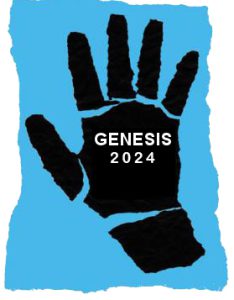, University of Bologna, Department of Classical Philology and Italian Studies
 GENESIS BOLOGNA 2024
GENESIS BOLOGNA 2024
Constants and Variants in Genetic Criticism
9–11 May 2024
Affreschi Room, via Zamboni 34, University of Bologna–Ariostea Library, Ferrara
Venue: University of Bologna, Department of Classical Philology and Italian Studies
***
This conference is co–organised by Department of Humanistic Studies o di Studi Umanistici (University of Ferrara), Ariostea Library (Ferrara) /DH.arc (University of Bologna), ITEM (CNRS, Paris)
Academic Committee: Mateusz Antoniuk, Olga Beloborodova, Mirna Bonazza, Christian Del Vento, Paolo D’Iorio, Nathalie Ferrand, Sakari Katajamäki, Paola Italia, Cristina Montagnani, Yi Peng, Giovanna Rizzarelli, Francesca Tomasi, Dirk Van Hulle, Wim Van Mierlo.
Organizing Committee: Paola Italia, Francesca Tomasi.
Secretary Office: Ilaria Burattini, Martina Dello Buono, Beatrice Nava, Roberta Priore, Alessandro Vuozzo.
The organizers of the Genesis Bologna Conference: Costants and Variants in Genetic Criticism welcome proposals for single papers on topics below.
Please send your abstract using the Form below to genesisbologna2024@unibo.it by 30th October.
Publication timeline:
Abstracts deadline: 30 October 2023
Notification of acceptance: 15 January 2024
—
Preliminaries to a Museum of Literature (Valéry–Caen), along with the birth of variant criticism, the perception of the text changed, as it was no longer considered a fixed object, but a process.
From this moment on, in the European culture that had laid the foundations of a ‘fixed’ tradition, where the variation of the author’s different wills had been balanced by the stability of the press, and the dogma of the author’s last will, variation, mouvance (Zumthor), and a
plural idea of the author’s will (Rico) come into play. The text is conceived not as a synchronic point of arrival, but as a “diachrony,
constituted by a sum of synchronies” (Segre), in which each station along the way is endowed with poetic value (Contini). But there is more. Thanks to the fruitful encounter with Saussure’s structural linguistics, the movements of the text are inserted into a system, in which the variants are within an individual pattern, for each author, and where the modes of material correction interact with those of linguistic
correction. The aim of criticism, therefore, is to include in the characterizing description that defines an author’s ‘style’, the detection of the ‘constants in the variants’.
In the transition of the last three decades, from the manual/mechanical production of texts, to a purely mechanical production, where the entire workflow, from design to printing and dissemination takes place on a digital medium, where the identity of the author is challenged by the multiple identities of a collaborative and social author (Shillingsburg), corrections have not disappeared, but proliferate in a rhizomatic multiplicity of variants, all traceable and memorable (Kirschenbaum), the challenge for criticism is still to study the fascinating interweaving of
constants and variants. The concept of fluid text, of ‘text in time’ (Buzzoni), introduced into 20th century culture by Genetic Criticism, proves to be the most productive for investigating the mechanisms of creation, whether on the white sheet of paper or on the black screen.
Contributions related to, but not limited to, the theme of the conference and addressing the following areas will be welcomed:
1. Problems of representation and analysis of variants of ancient and modern texts.
2. Critical, linguistic and stylistic studies of texts ‘in motion’.
3. Constants and variants in the genetic dossier of individual authors.
4. Constants and variants in the Genetic Dossier of Authors from Different Periods and Origins.
5. Constants and variants in lists, sketches, literary drawings, maps.
6. Constants and variants in the annotation practices of texts, personal libraries, marginalia.
7. Contributions of hermeneutics, text theory, comparative criticism on constants and variants.
8. Problems of representation and analysis of variants in the digital ecosystem.
9. Automatic and semi–automatic methods and models for analyzing variants and constants of
language and style.
10. Linguistic and stylistic analysis of language constants and variants and AI

















